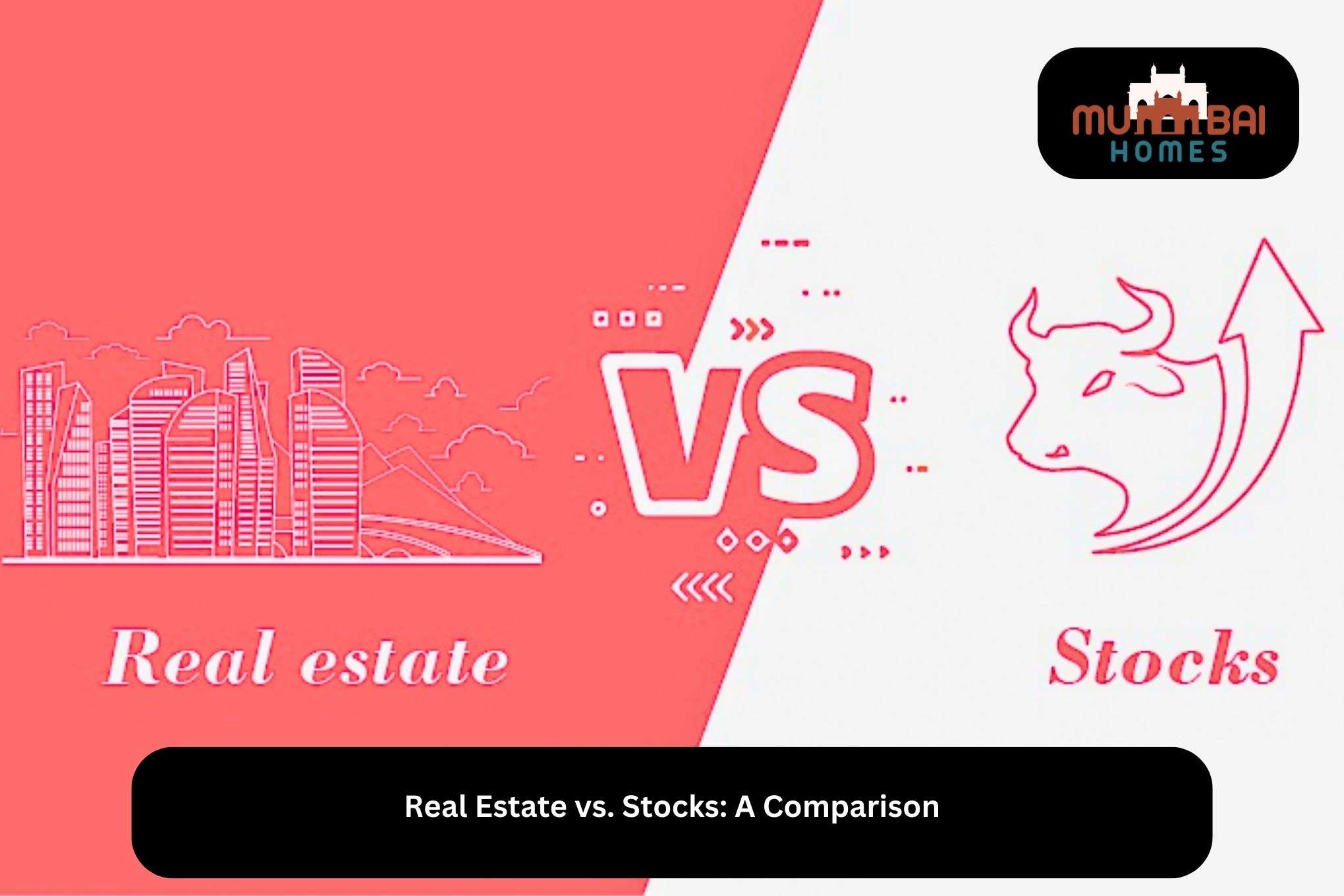Real Estate vs. Stocks:
In today’s world, making an investment has ended up a critical factor in building wealth and securing a financially strong future. When thinking about investment avenues, real estate, and stocks are the most popular selections. Both offer precise possibilities for growth and financial success and it is critical to recognize real estate vs. Stocks returns. By expertise in the key elements of these investments, traders could make knowledgeable decisions aligned with their monetary desires.
Comparison between Real Estate vs. Stocks Returns:
Returns: Real Estate vs. Stocks Returns:
When it comes to evaluating real estate vs. Stocks returns, both options have their own advantages and downsides.
Real Estate Returns:
One advantage of real estate investments, including rental properties, is the constant and reliable stream of rental profits they provide. These rental profits can provide cash flow over time, contributing to favorable returns. Real estate has shown consistent appreciation charges, making it an appealing alternative for long-term investors.
Stocks Returns:
Stocks, however, can provide significant capital profits if invested wisely. Companies with sturdy boom potentialities can revel in speedy stock price appreciation, leading to notable returns. Furthermore, a few stocks pay ordinary dividends to shareholders, supplying extra income and boosting common returns.
Risk: Real Estate vs. Stocks Returns:
Real Estate Risk:
Real estate investments are particularly liquid compared to stocks. It takes time to sell a property and even after the sale, it may take beyond regular time to access the cash. This lack of liquidity may be considered a hazard component when compared to stocks.
Stocks Risk:
When you compare the Real Estate vs. Stocks Returns it is important to know potential stocks risk. Investors must be organized for short-time period rate volatility and feature the emotional ability to resist marketplace swings without making impulsive selections. This volatility may be visible as a threat associated with inventory investments.
Investing Strategies: Real Estate vs. Stocks Returns:
Real Estate Strategies:
Real estate investments provide investors with assets that can be seen and managed directly. This aspect of real estate allows for more hands-on involvement and control over the investment. This allows investors to amplify their returns and increase potential profits.
Stocks Strategies:
Stock flexibility enables investors to respond promptly to market conditions. By spreading investments across different stocks, investors can reduce the impact of negative performance from any single company or sector, potentially lowering overall risk.
Tax Benefits: Real Estate vs. Stocks Returns:
Real Estate Tax Benefits:
Investing in real estate gives diverse tax advantages that can affect average returns. Rental earnings from real estate properties are often taxed at a lower price compared to ordinary profits, presenting potential tax savings. These deductions can assist reduce taxable earnings, ensuing in capacity tax advantages and extended returns.
Stocks Tax Benefits:
While stocks do not provide direct tax benefits like real estate, positive funding money along with Individual retirement accounts(IRAs) provide tax advantages for stock investments. Contributions to those debts may be tax-deductible or offer tax-deferred benefits, permitting buyers to probably reduce their tax prison duty and maximize returns.
Long-Term Potential: Real Estate vs. Stocks Returns:
Real Estate Potential:
Real estate investments are usually considered stable, as the demand for housing and business spaces has a tendency to persist over time. This stability contributes to the long-term ability of real estate investments. This component similarly enhances the long-term capacity of real estate investments.
Stocks Potential:
Stocks have proven the potential for great long-term growth. Investments in well-appearing corporations can generate big returns over a prolonged period. Moreover, making an investment in shares presents publicity to diverse groups throughout industries, permitting traders to advantage of average market growth.
Conclusion:
Both real estate vs. stock returns offer benefits and concerns for buyers. Determining which investment will always yield better returns is tough as it is able to vary over periods. A well-diversified investment portfolio may encompass each real estate and stock, presenting a balanced approach to wealth accumulation through the years. You can make a desire approximately in which to invest by retaining in mind the benefits, concerns, and risks of real estate and stocks to achieve your economic goals.
FAQ:
1. Which investment yields higher returns, real estate vs. stock returns?
ANS. The returns from real estate and stocks can range appreciably relying on different factors which include market conditions, and investment methods.
2. How does real estate act as a hedge against inflation?
ANS. Real estate can act as a hedge against inflation due to the fact property values and rental incomes generally tend to increase with growing inflation.
3. Should you include each real estate and stock in your investment portfolio?
ANS. Including each real estate and stock in a well-diversified investment portfolio can offer a balanced approach to wealth accumulation and probably enhance overall returns.




